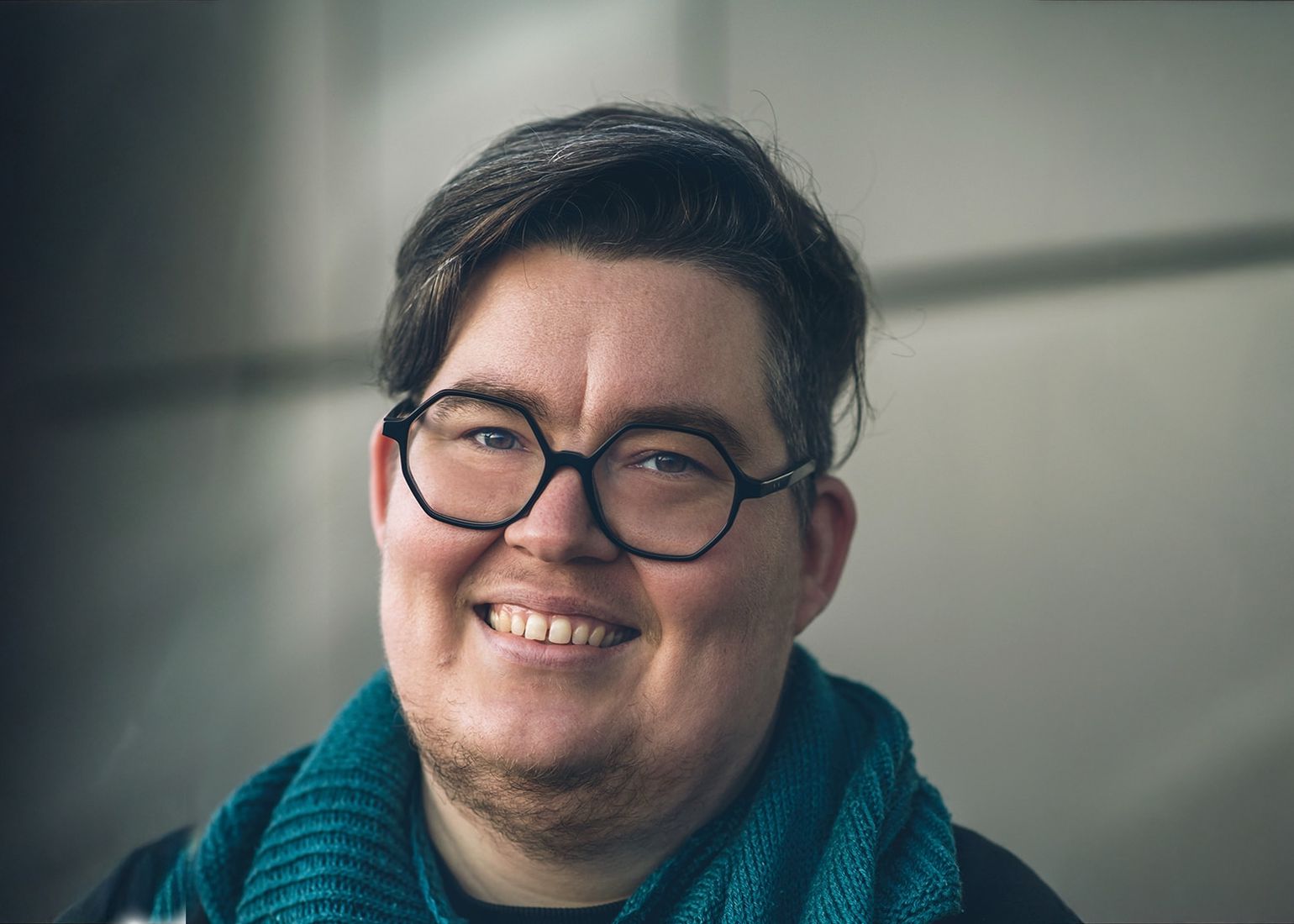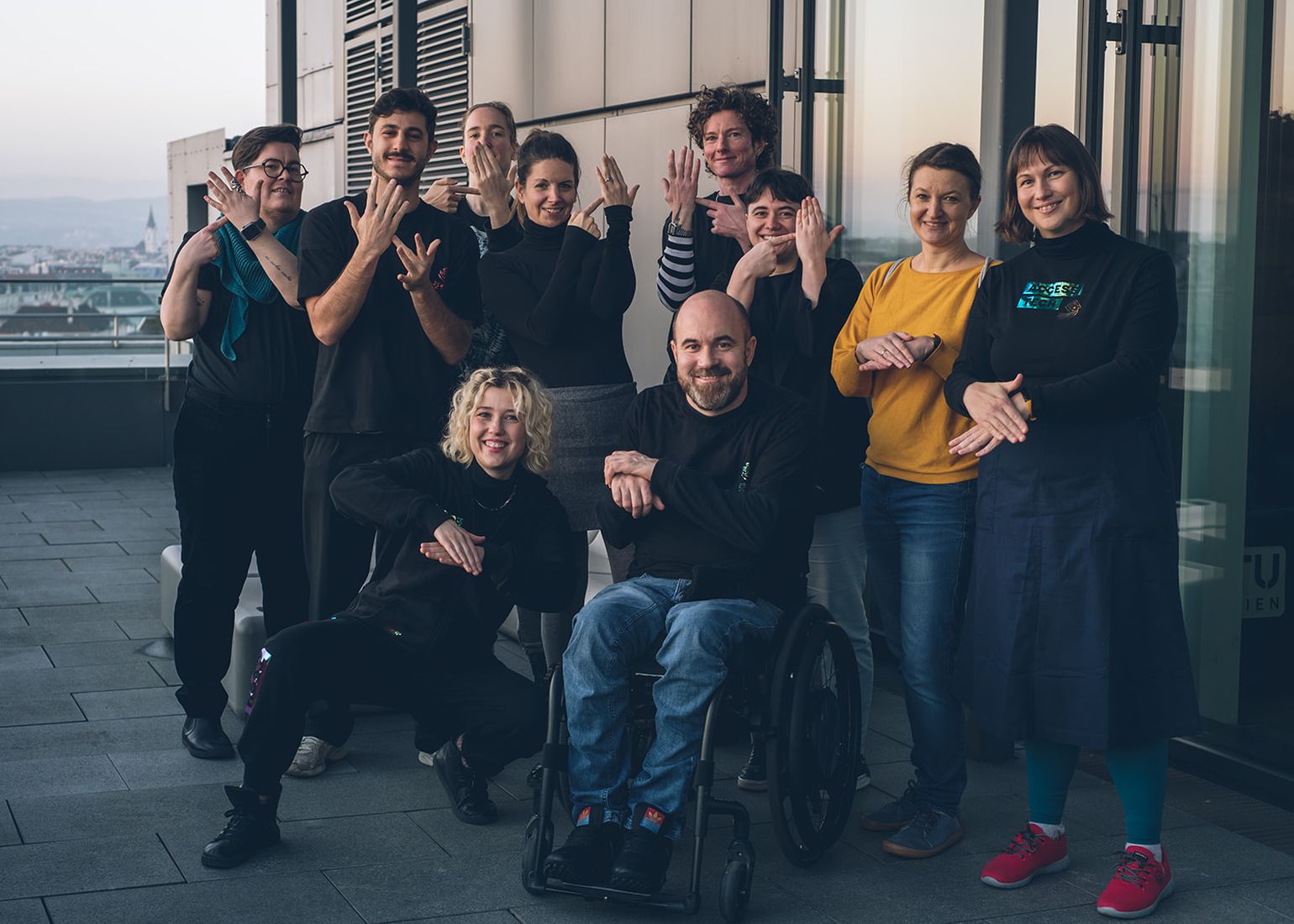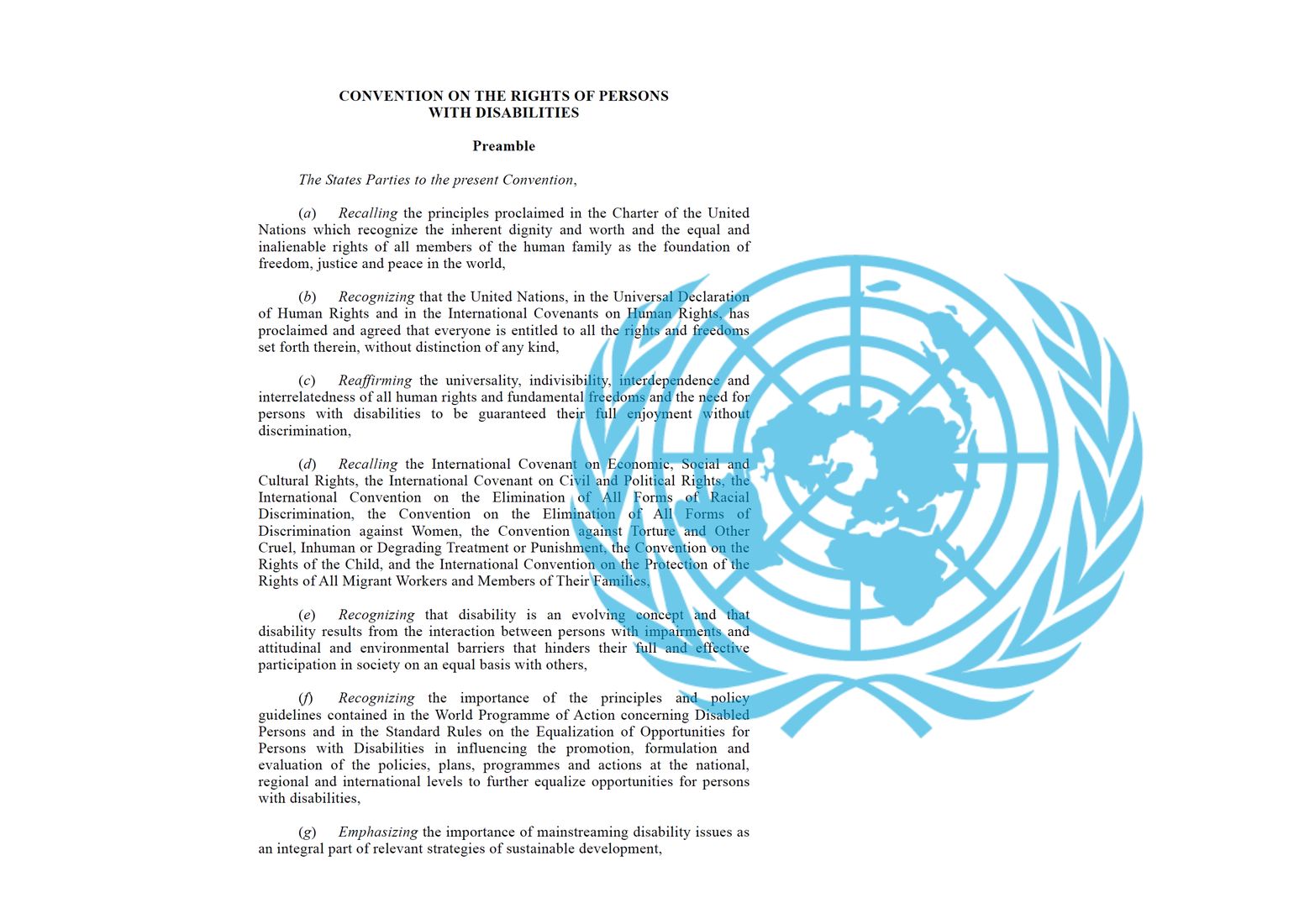Access, Rights, and Monitoring
Katta Spiel has recently been appointed as a member of the Independent Monitoring Committee on the Implementation of the UN Convention on the Rights of Persons with Disabilities. We’ve talked to them about the role of the Convention and the Monitoring Committee in Austria.

Picture: Amélie Chapalain / TU Wien Informatics
Tell me a little bit about the Monitoring Committee.
To contextualize the Monitoring Committee, let me start by saying that the United Nations adopted the Convention on the Rights of Persons with Disabilities (CRPD) in 2006. Different countries can ratify the CRPD and other conventions or treaties, just as with the Universal Declaration of Human Rights. The funny thing is that the Declaration of Human Rights, which was already adopted in 1948, accounts for all people, including disabled people, but fails to address the specific challenges faced by people with disabilities. We see that in the diversity that exists in the legislation for disabled people in terms of access provisions in Austria and other countries.
About
The Monitoring Committee is an independent committee that monitors compliance with the human rights of persons with disabilities by the public administration in the area of federal competence. It can obtain opinions from administrative bodies in individual cases, issue recommendations and opinions concerning the rights of persons with disabilities in connection with matters relating to the CRPD and regularly reports to the Federal Disability Advisory Board on its deliberations.
The CRPD was ratified by Austria in 2008. The duties that come with it also include the constitution of a monitoring board to promote, protect, and monitor the implementation of the CRPD. This includes examining legislative bills and proposals and considering what these proposals mean in the framework of the CRPD. By signing the treaties, Austria has committed to fulfilling the rights of disabled people, fully acknowledging that we are not necessarily there yet, but actively working towards this goal. Every couple of years, the signatory states must undergo reviews by the UN Committee on the Rights of Persons with Disabilities.
This process assesses how well Austria implements the rights outlined in the Convention, highlighting achievements and areas that need improvement. Several articles in the CRPD specifically state that the development of access-enabling technologies should be actively supported. The CRPD is a politically binding international treaty. Even though there are no direct sanctions if Austria does not fulfill the treaty requirements, it establishes a framework to hold the public administration accountable.
What are the responsibilities of the committee, and who is on it?
The monitoring committee has different tasks such as reviewing laws and policies, providing recommendations and engaging with civil society to promote and protect the rights of people with disabilities; people are involved in outreach activities, the chair and co-chairs of the committee represent the committee to the public, and there are people with various expertise and backgrounds who give recommendations and report from their fields. I, for example, have expertise in technology and disability studies. I was specifically appointed to a position for academic members, together with Tobias Buchner, who has served as chair until recently. That’s not all, though; we also have lawyers working for the monitoring board. They support the monitoring committee in legal matters, such as translating the committee’s concerns into a legal document that can be presented to politicians.
What is it like being on the monitoring committee?
It feels a bit like you learn on the job. I’m trying to be someone that people can come to, that’s how I understand my role, at least. Different organizations or different individuals within organizations have done that already, which also brings in new topics to the committee. The monitoring committee has yearly topics and a public meeting once a year. This year’s topic is children and youth and their perspectives on disability and multiple marginalizations. Being a disabled girl, for example, has different ramifications than being a disabled boy. I further provide my expertise to the committee and coordinate people and institutions, like individuals who approach me, come to me with a specific topic or problem, and then ask me to pass that on to the committee or discuss it on the committee. The thing with individual problems is that technically, we’re not the first place to go to address these problems, but we need to know about these cases because we observe trends. Understanding that there are multiple cases where the same type of oppression happens allows us to put that on the (political) table. Knowing that there are repeated denials of access within infrastructures is good for understanding and identifying legislative, practical, or structural shortcomings.
A lot of people who don’t necessarily identify as disabled want inclusion and diversity and all that, but what disabled people want is to be and to live in a world that allows them to have choices and a meaningful life, just like everybody else.
Suppose we identify a problem or issue that happens across multiple universities, or in academia more generally, we discuss it and then use our various instruments to report it. If we identify a problem, like we’re struggling to support our deaf employees in having equal access, and I have one university coming and another and another, and we identify a systemic need. In that case, we can make that a topic of discussion on a higher level.
Even when laws and regulations exist, you can escalate the matter to the United Nations if your rights are not recognized under national legislation or if no action is taken to implement them. This step is available once all legal avenues within Austria have been exhausted without success. The UN committee then issues a recommendation to Austria, which increases political pressure.
Who do you provide your recommendations to?
Toward the public administration at the federal level.
What does being a committee member mean to you?
When they told me that they wanted me to be on the board, I felt incredibly privileged. It’s a huge honor for me to have the trust of my peers to contribute to our cause, simply to be. Caroline-Sophie Pilling wrote, specifically about deaf people, that a lot of hearing people want inclusion, and deaf people just want to be, and I think that accounts for disabled people writ large. A lot of people who don’t necessarily identify as disabled want inclusion and diversity and all that, but what disabled people want is to be, and to live in a world that allows them to have choice, and a meaningful life, just like everybody else. Contributing to that is a huge privilege for me, and getting the chance to do so more actively, being recommended by my peers to do that systematically, and having dedicated time to do that is a huge honor and makes me very happy.

Picture: Amélie Chapalain / TU Wien Informatics
What’s your appointment period?
Four years, until 2029.
How do you get appointed to the committee?
I applied. The committee had interview rounds with applicants, different stakeholders, and the Disability Council. After that, they made their decision and recommendation to the ministry, and then the (former) Minister for Social Affairs (Johannes Rauch) officially announced my appointment in a letter.
Anything else that you think is important to know about the committee?
I often say gossip is life, but it really is important to understand individual experiences because taking legal action and fighting for your rights is exhausting. It’s more damaging to the people who have to fight for their rights than to those who deny them. It’s work that is unfairly impactful to the people who are oppressed, compared to those who are oppressing. I get that you don’t always want to fight, also from personal experience. To me, it’s actually easier fighting for other people, making these points, and arguments. This solidarity aspect is very important to me, and I want to point out that that is also why it seems so weird to say, Oh, tell me your stories, and then we’ll figure out whether there’s something systematic behind that. Because first, there is often something systematic behind that, it’s not an individual case. Second, it’s good to collect these stories somewhere and record them. We need to understand what these experiences are in a lived and exchange type of way to address oppression and systems that are deeply exclusive. I’m regularly surprised how little people know there’s the EU Accessibility Act, and that I’m not pestered with questions about that.
Katta Spiel is Assistant Professor at the Research Unit Human Computer Interaction at TU Wien Informatics. Their current project, ACCESSTECH, investigates how Access is experienced in interaction with modern technologies. The project is funded by an ERC Starting Grant und will continue until 2029.

